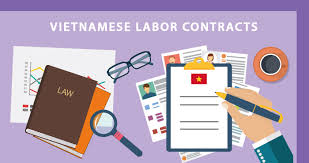Labor Contracts: Common Mistakes and How to Avoid Them in Vietnam
Labor contracts are essential legal documents that establish the terms and conditions of employment between employers and employees. In Vietnam, the Labor Code mandates written contracts, ensuring that both parties understand their rights and obligations. However, errors in drafting or executing labor contracts can lead to significant disputes, legal issues, and complications in the workplace. This article outlines common mistakes made in labor contracts in Vietnam and provides practical strategies to avoid them.
Key Legal Framework for Labor Contracts in Vietnam
Understanding the legal requirements for labor contracts is crucial. The Vietnamese Labor Code outlines the framework for employment relationships, emphasizing the necessity of formally documenting agreements between employers and employees.
Key Provisions of the Labor Code
- Mandatory Written Contracts: All employees must have a written labor contract, regardless of the employment arrangement’s duration (fixed-term or indefinite).
- Essential Contract Elements: Contracts must specify the following:
- Job Description: Clearly define the employee’s roles and responsibilities.
- Compensation: Outline salary, bonuses, and any additional benefits.
- Working Hours: Specify expected working hours, including overtime conditions.
- Duration: Determine whether the contract is fixed-term or indefinite.
- Employee Rights: The Labor Code guarantees employees certain rights, including fair wages, work conditions, and leave entitlements, which must be acknowledged in the contract.

Common Mistakes in Labor Contracts
1. Vague and Ambiguous Language
One of the most significant mistakes in drafting labor contracts is using vague or ambiguous language that can lead to misunderstandings.
How to Avoid This Mistake:
- Be Specific: Use clear and precise language when defining job roles, responsibilities, and expectations. Avoid legal jargon or overly complex terms that may confuse the parties involved.
- Define Terms: Include definitions for critical terms or phrases, particularly those related to compensation, performance metrics, and benefits.
2. Failing to Comply with Legal Requirements
Many employers inadvertently fail to comply with local labor laws when drafting labor contracts, leading to potential legal challenges or disputes.
How to Avoid This Mistake:
- Legal Review: Engage a labor contract lawyer with expertise in Vietnamese labor law to review the contract before finalization. They can ensure that all legal requirements are met and that the contract aligns with current regulations.
- Stay Informed: Regularly update knowledge on changes in labor laws and regulations to ensure contracts remain compliant.

3. Omitting Essential Clauses
Omitting critical clauses related to termination, conflict resolution, and confidentiality can create significant vulnerabilities for both employers and employees.
How to Avoid This Mistake:
- Termination Clauses: Clearly outline the conditions under which either party may terminate the contract, including notice periods and grounds for termination. This clarity helps in managing expectations and minimizing potential disputes.
- Dispute Resolution: Incorporate clauses that specify the process for resolving disputes, including mediation or arbitration. This can save time and costs associated with prolonged litigation.
- Confidentiality Agreements: If applicable, include clauses that safeguard confidential information and trade secrets to protect the employer’s business interests.
4. Neglecting to Address Overtime and Working Hours
Another common mistake is not sufficiently addressing overtime provisions and working hours in labor contracts, leading to misunderstandings regarding employee obligations.
How to Avoid This Mistake:
- Define Working Hours: Explicitly state the standard working hours, overtime conditions, and pay rates for overtime. Include any limitations on the number of overtime hours employees are expected to work.
- Incorporate Flexibility: If applicable, include provisions that allow for flexible working arrangements while ensuring compliance with labor laws.
5. Failing to Update Contracts for Changing Laws
Laws and regulations regarding labor may change over time. Contracts that do not reflect updates in law can become outdated and unenforceable.
How to Avoid This Mistake:
- Regular Reviews: Regularly review and update labor contracts to ensure compliance with current laws and practices. This can also prevent disputes over outdated terms.
6. Not Providing Copies of Contracts
Failing to provide employees with copies of their signed labor contracts can lead to confusion and disputes over terms.
How to Avoid This Mistake:
- Provide Copies: After both parties have signed the contract, make sure that each party receives a signed copy for their records. Clear communication about contract terms is essential for avoiding misunderstandings.
7. Ignoring Employee Rights
Not acknowledging the rights outlined in the Labor Code can lead to breaches, exposing the employer to legal risks and potential lawsuits.
How to Avoid This Mistake:
- Incorporate Employee Rights: Include clauses that affirm employee rights to salary, benefits, leave entitlements, working conditions, and occupational safety measures as per the Labor Code.
- Educate Employees: Ensure employees are aware of their rights and obligations, fostering an atmosphere of trust and transparency.

The Role of Labor Contract Lawyers
Engaging a labor contract lawyer is crucial for businesses seeking to draft effective and compliant labor agreements. Here are the primary benefits of involving legal counsel:
1. Expertise in Labor Law
Labor contract lawyers have in-depth knowledge of Vietnamese labor laws and can ensure that contracts comply with legal requirements, reducing the potential for disputes.

2. Risk Mitigation
Lawyers help identify potential risks associated with labor contracts, advising on how to mitigate these risks and establish robust agreements.
3. Customized Contracts
Attorneys assist in drafting tailored contracts that meet both legal standards and the specific needs of the business, ensuring clarity and enforceability of terms.
4. Representation in Disputes
Should disputes arise regarding labor contracts, lawyers can represent clients in negotiations, mediation, or litigation, advocating for their rights and interests.
Best Practices for Drafting Labor Contracts
To effectively draft labor contracts that minimize potential disputes, consider implementing the following best practices:
- Engage Legal Expertise: Always involve a labor contract lawyer in the drafting process to ensure compliance with Vietnamese laws and regulations.
- Conduct Thorough Reviews: Regularly review contracts to confirm that they remain relevant and comply with the latest legal standards.
- Foster Clear Communication: Maintain open lines of communication with employees about their rights, obligations, and the terms of the contract to avoid misunderstandings.
- Document Everything: Keep thorough records of all employment-related documents, including contracts, communication, and updates to policies. This documentation can serve as evidence in case any issues arise.
- Educate Employees: Provide training and resources to educate employees about the contractual terms, their rights, and the procedures for addressing grievances.

Conclusion
Understanding the nuances of labor contracts and the legal protections associated with them is vital for both employers and employees in Vietnam. By avoiding common mistakes and implementing best practices for contract drafting, businesses can protect their rights and foster positive employment relationships. Engaging the expertise of labor contract lawyers can further streamline the process, ensuring compliance and safeguarding interests. By prioritizing thoughtful contract management, organizations can enhance employee satisfaction, minimize disputes, and create a harmonious workplace conducive to growth and success.
